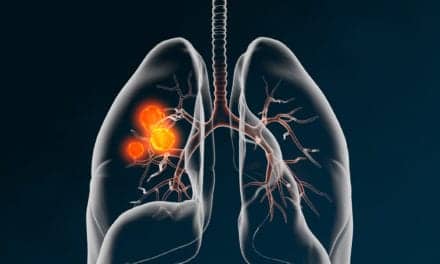Clarient Inc has announced that it has acquired privately held, Huntsville, Ala-based Applied Genomics Inc (AGI) in an all-stock merger valued at up to $17.6 million, if all conditions and milestones set forth in the merger agreement are successfully met. As a result of the merger, AGI has become a wholly-owned subsidiary of Clarient.
Clarient Chief Executive Officer Ron Andrews said that AGI provides Clarient a full and near-term product pipeline, including an important new lung cancer panel; an active development engine for new diagnostic and prognostic cancer tests; an eastern US development lab facility to support the Company’s pharmaceutical services initiative; a working network of the top academic and industry validation resources and some of the top minds in the field of cancer testing.
"Applied Genomics and Clarient represent a strong strategic and technological fit providing for multiple proprietary tests that can be commercialized via the Clarient national footprint," said Andrews. "The combination of these organizations populates the Clarient proprietary pipeline of cancer tests, including the planned commercial launch of an important lung cancer test, Pulmotype®, in the first quarter of 2010, followed by a series of proprietary tests to be commercialized in the following 24 months across a range of cancers including lung, breast and ovarian."
Pursuant to the terms of the merger agreement, Clarient acquired all of the outstanding capital stock of AGI in exchange for up to an aggregate of 7.6 million shares of Clarient common stock. The total consideration consists of 4.4 million shares of Clarient common stock issued to the former AGI stockholders at closing and up to 3.2 million additional shares of Clarient common stock issuable to the former AGI stockholders contingent upon the satisfaction of certain clinical, commercial and revenue milestones set forth in the merger agreement. The shares issued at closing will be reduced by 440,000 shares that will be placed into an escrow account to cover future indemnity claims.
"AGI’s lung cancer pipeline fulfills an important strategic need for Clarient. Having a test that provides us access to the primary lung tumor block much earlier in the diagnostic process will allow Clarient to provide pathologists with critical information at the early stages of therapy decision. It also strengthens our position to gain a greater share of the rapidly increasing EGFR (epidermal growth factor receptor) mutation testing market. The development of lung cancer diagnostics has been slow relative to other cancers; however, we now have a powerful foundation upon which to build a market-leading lung cancer franchise," continued Andrews.
In addition to Pulmotype, AGI has a pipeline of cancer diagnostic, prognostic and theranostic tests at various stages of validation and planned commercialization. Theranostics are a class of tests that assist in the selection of therapies by determining an individual patient’s reaction to a specific therapeutic drug. The portfolio of tests includes a theranostic that may predict the response of a patient’s cancer to taxane therapy across a variety of cancers, including lung, breast and ovarian.
The taxane class of chemotherapeutic agents is widely used, and understanding a patient’s propensity to respond before administering this powerful drug will provide clinicians a much needed tool to aid in personalizing cancer treatment. AGI also has a breast cancer panel with proprietary markers that could be included in a future version of Clarient’s Insight® Dx, as well as separate tests designed to determine the potential response of women with breast cancer to certain drugs and therapies.
The acquisition also provides Clarient access to a powerful development engine built on a series of tissue microarrays custom designed from patient cohorts, as well as a set of tools developed by AGI designed to efficiently sub-classify cancers and create information used to better treat the disease. These tools consist of IHC markers developed in-house, allowing the identification of patients that fit into these subcategories and then correlating that information to determine the right course of treatment.
Commenting on AGI’s development engine, Rob Seitz, AGI Chief Executive Officer, said, "Historically, we have been able to develop these products through collaborations with academic institutions. Now, as part of Clarient, we will have the ability to offer our tests and capabilities to community pathologists and their patients across the country. The new combined organization will also continue to assist pharmaceutical companies which can use our technologies to improve and speed clinical trials. These companies can now identify new and important patient subtypes, while Clarient gains proprietary biomarker content to create generations of new products."
"We couldn’t be more excited about the prospects of the pipeline and development capabilities we have acquired. The combination of near-term commercial opportunity, the rich, long-term pipeline, and the robust development capabilities would be nearly impossible to replicate in-house and would take an investment of many years and considerable cash resources to attempt to do so. To be able to acquire such a valuable asset at such a fair value is a testimony to the power of Clarient’s well-established commercial channel. Through this combination we strengthen our position for growth in 2010 and beyond," concluded Andrews.
Source: Clarient



